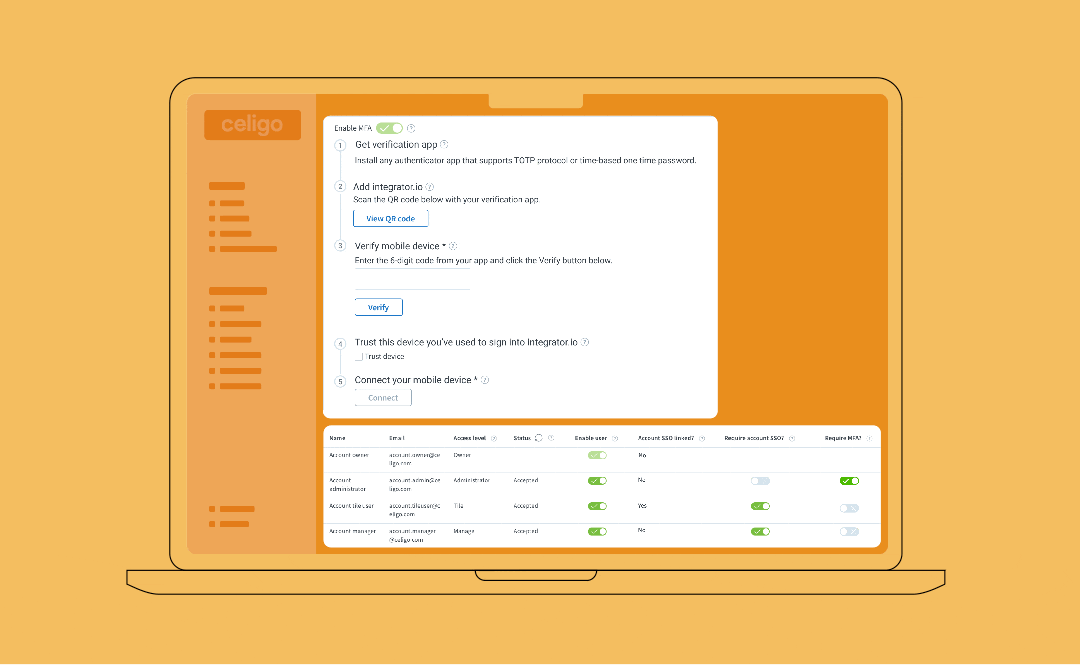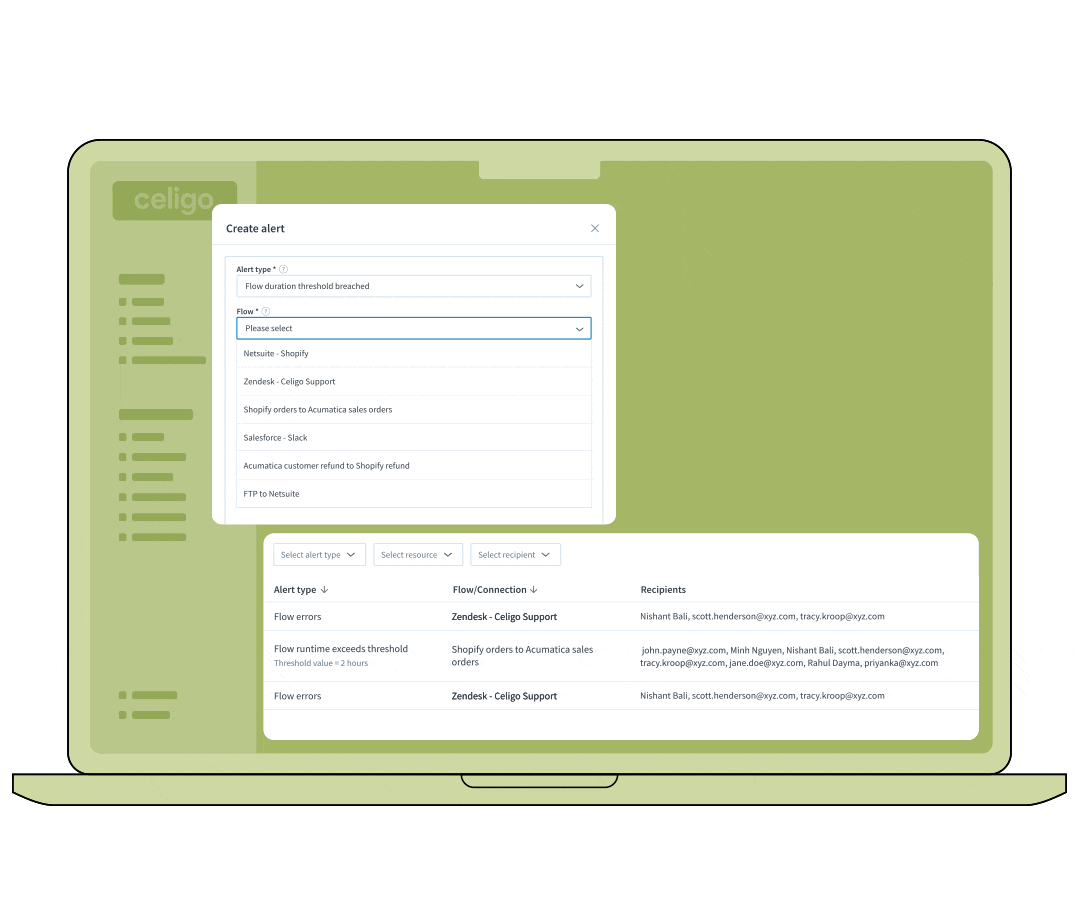Published May 14, 2024
Vendor-provided integration vs. iPaaS: Unpacking the pros and cons
Compare vendor-provided integration with iPaaS to find the best scalable solution for your business

In the complex and intricate world of modern business operations, integrations are the threads that bind systems and processes together. By integrating your tech stack, you can enable smooth data flow between applications and drive business process automation.
But with so many integration options available, it can be difficult to find a solution that meets your unique business needs–especially when it comes to scalability. As you explore your options, you will likely come across vendor-provided integration, also known as native integration.
When determining if vendor-provided integration is the right fit, you should start by evaluating the scope of your integrations and your scalability requirements. This will help ensure that the solution you select meets your needs today and in the future.
Let’s unpack the pros and cons of vendor-provided integration and how this solution compares to an iPaaS (Integration Platform as a Service).
Key takeaways: Comparing vendor-provided integration & iPaaS
- Many applications offer point-to-point integrations for popular hub systems.
- These vendor-provided integrations work well for simple use cases but become difficult to manage at scale due to limited visibility and a lack of a centralized platform.
- Advanced iPaaS solutions provide a unified platform with robust tools for development, execution, and governance, along with prebuilt integrations for non-technical users.
- Advanced iPaaS platforms enable rapid adoption of new technologies while ensuring security and compliance and offer seamless scalability with no practical limits on the number of applications, flows, or data volume.
Vendor-provided integration
SaaS applications often provide point-to-point integrations to popular hub applications like Salesforce or NetSuite. These vendor-provided integrations address common use cases, and business system administrators can configure them to exchange data between two applications.
The drawbacks of vendor-provided integration become apparent when considering scalability. In order to scale this solution, you will need developers to work in multiple applications to manage automations and troubleshoot problems.
Since these integrations aren’t centralized on a single platform, visibility and error handling is limited–often with no ability to recover records without manually rekeying data. As the number of integrations grows, so does the risk of non-compliance and privacy risks.
Due to the increased complexity of spanning multiple systems and business processes, this solution is ideal for integrations with a limited number of endpoints and flows.
Benefits
- Fast and easy to implement
- Relatively inexpensive (Higher tier subscriptions may be required for access to APIs and integration services)
Challenges
- Limited to common use cases
- Can’t be customized
- Doesn’t support complex business processes that span multiple systems
- Requires technical resources to manage automations and troubleshoot problems
- Little visibility into error handling
- Potential non-compliance with data security and privacy standards
Advanced iPaaS
Advanced iPaaS (Integration Platform as a Service) solutions offer a single AI-enabled platform that empowers both business users and developers to integrate applications and automate business processes.
This solution provides the robust tools IT teams require for efficient development, execution, and governance of flows. It also offers prebuilt integrations and a user-friendly interface to assist non-technical users in building, managing, and monitoring integrations.
These tools allow your business teams to quickly adopt new technologies and implement them–while ensuring security and compliance. This prevents integration backlogs and IT bottlenecks. And, with no practical limit to the number of applications, flows, or size of data, this solution is ideal for scalability.
Benefits
- Low total cost of ownership
- Faster time to value
- Enables business users to promote agility and automation
- Optimized efficiency
- Greater scalability
Challenges
- Training business users
iPaaS: The perfect fit for scalability
For organizations looking to remain agile and empower their employees to rapidly adopt new innovative solutions, while also building scalable, resilient operations, iPaaS is the right solution. Although vendor-provided integration can be cheap and easy to implement, this solution lacks the capabilities you need to thrive in today’s business world.
With iPaaS, you’ll gain increased flexibility with the necessary oversight for IT to ensure you’re able to consistently deliver for your customers. Contact us today to learn how an iPaaS solution can help you build scalable operations.
Integration Insights
Expand your knowledge on all things integration and automation. Discover expert guidance, tips, and best practices with these resources.




